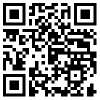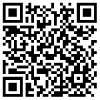
Lehrgebiet: Angewandte Informatik, Mensch-Maschine-Interaktion
Büro: 01.216
Labor: 03.213
Telefon: +49 208 88254-804
E-Mail:

Prof. Dr. Stefan Geisler ist seit dem Wintersemester 2010 an der Hochschule Ruhr West. Er bekleidet dort die Professur für Angewandte Informatik / Mensch-Maschine-Interaktion und ist Studiengangsleiter für den Studiengang Mensch-Technik-Interaktion. Seit 2016 leitet er das Forschungsinstitut Positive Computing, ist Mitglied im gleichnamigen Forschungsschwerpunkt sowie im Forschungsschwerpunkt Intelligente Mobilität. Im Graduierteninstitut des Landes NRW ist er Sprecher der Fachgruppe Medien und Kommunikation.
In Lehre und Forschung beschäftigt er sich mit der Frage, wie Computersysteme, Mobilgeräte, Elektroniksysteme im Fahrzeug u.v.m. so entwickelt werden können, dass sie für die späteren Benutzer gut verständlich und ohne Probleme bedienbar sind. Dabei betrachtet er in seinen Lehr- und Forschungsaktivitäten den gesamten Usability Engineering Prozess, von der Ideenfindung, Protoypenentwicklung, Benutzertests bis zur Implementierung. Insbesondere interessiert ihn die Entwicklung neuer Interaktionsformen und wie diese für ein intuitives Bedienkonzept und ein gelungenes Nutzungserlebnis (User Experience) genutzt werden können, sowie Möglichkeiten, spätere Nutzer*innen in den Entwicklungsprozess zu integrieren und Bedienschnittstellen auf ihre Wünsche und Anforderungen zu optimieren. Ein intensiv bearbeitetes Anwendungsfeld ist das Automobil, insbesondere neue Bedienmethoden und deren Auswirkung auf die Fahrqualität und Konzepte für hochautomatisiertes Fahrzeug. Dabei stehen auch Vertrauen in und Beherrschbarkeit von neuen Automobiltechnologien durch alle Verkehrsteilnehmer*innen im Fokus, sowohl mit Methoden des User Onboardings als auch durch kontinuierliche passgenaue Visualisierung dazu notwendiger Informationen.
Stefan Geisler hat mehrere Forschungsprojekte bearbeitet bzw. ist an aktuellen beteiligt, darunter zu den Themenfeldern Golden Rules im Automotive HMI für einen Automobilhersteller, Usability von Assistenz- und Informationssystemen im häuslichen Umfeld (UsAHome, FH Struktur), Natural User Interfaces auf Multi-Touch-Tischen (u.a. auch für ein Kommunikationssystem zur Förderung des Dialogs zwischen Behörden und Bürger*innen mittels Innovationsgutschein), Benutzerschnittstellen für sicherheitskritische Anwendungen (BMBF-Projekt AHA) sowie Barrierefreie Bedienkonzepte. Im Rahmen von Positive Computing (FH Kompetenz) wird das Themenfeld interkulturelle und generationsübergreifende Innovationsentwicklung im Rahmen einer Promotion betreut, im Rahmen des Forschungsschwerpunkts Intelligente Mobilität eine Promotion zu natürlichen Benutzerschnittstellen in (teil-)automatisierten Fahrzeugen.
In Lehre und Forschung beschäftigt er sich mit der Frage, wie Computersysteme, Mobilgeräte, Elektroniksysteme im Fahrzeug u.v.m. so entwickelt werden können, dass sie für die späteren Benutzer gut verständlich und ohne Probleme bedienbar sind. Dabei betrachtet er in seinen Lehr- und Forschungsaktivitäten den gesamten Usability Engineering Prozess, von der Ideenfindung, Protoypenentwicklung, Benutzertests bis zur Implementierung. Insbesondere interessiert ihn die Entwicklung neuer Interaktionsformen und wie diese für ein intuitives Bedienkonzept und ein gelungenes Nutzungserlebnis (User Experience) genutzt werden können, sowie Möglichkeiten, spätere Nutzer*innen in den Entwicklungsprozess zu integrieren und Bedienschnittstellen auf ihre Wünsche und Anforderungen zu optimieren. Ein intensiv bearbeitetes Anwendungsfeld ist das Automobil, insbesondere neue Bedienmethoden und deren Auswirkung auf die Fahrqualität und Konzepte für hochautomatisiertes Fahrzeug. Dabei stehen auch Vertrauen in und Beherrschbarkeit von neuen Automobiltechnologien durch alle Verkehrsteilnehmer*innen im Fokus, sowohl mit Methoden des User Onboardings als auch durch kontinuierliche passgenaue Visualisierung dazu notwendiger Informationen.
Stefan Geisler hat mehrere Forschungsprojekte bearbeitet bzw. ist an aktuellen beteiligt, darunter zu den Themenfeldern Golden Rules im Automotive HMI für einen Automobilhersteller, Usability von Assistenz- und Informationssystemen im häuslichen Umfeld (UsAHome, FH Struktur), Natural User Interfaces auf Multi-Touch-Tischen (u.a. auch für ein Kommunikationssystem zur Förderung des Dialogs zwischen Behörden und Bürger*innen mittels Innovationsgutschein), Benutzerschnittstellen für sicherheitskritische Anwendungen (BMBF-Projekt AHA) sowie Barrierefreie Bedienkonzepte. Im Rahmen von Positive Computing (FH Kompetenz) wird das Themenfeld interkulturelle und generationsübergreifende Innovationsentwicklung im Rahmen einer Promotion betreut, im Rahmen des Forschungsschwerpunkts Intelligente Mobilität eine Promotion zu natürlichen Benutzerschnittstellen in (teil-)automatisierten Fahrzeugen.
ARBEITS- UND FORSCHUNGSSCHWERPUNKTE
- Mensch-Technik-Interaktion, Natural User Interfaces, Optimierung von Bedienkonzepten für Mobilgeräte, Anforderungsanalyse, Konzeptentwicklung, Usability Tests
- Mensch-Maschine-Interaktion im Fahrzeug
- Fahrzeuginformationstechnik, Fahrerassistenzsysteme, Infotainment, Fahrzeugbusse, Telematik und Car-to-X Kommunikation, nachhaltige Mobilität/Elektromobilität
LEHRVERANSTALTUNGEN
- ???
- ???
- ???
PROJEKTE
- Projekt mit Verlinkung
- ???
- ???
WISSENSCHAFTLICHE EINRICHTUNGEN
WISSENSCHAFTLICHE MITARBEITER*INNEN
AUSGEWÄHLTE PUBLIKATIONEN
Es sind leider keine Einträge vorhanden.
RESEARCH GATE PROFIL

GOOGLE SCHOLAR PROFIL


